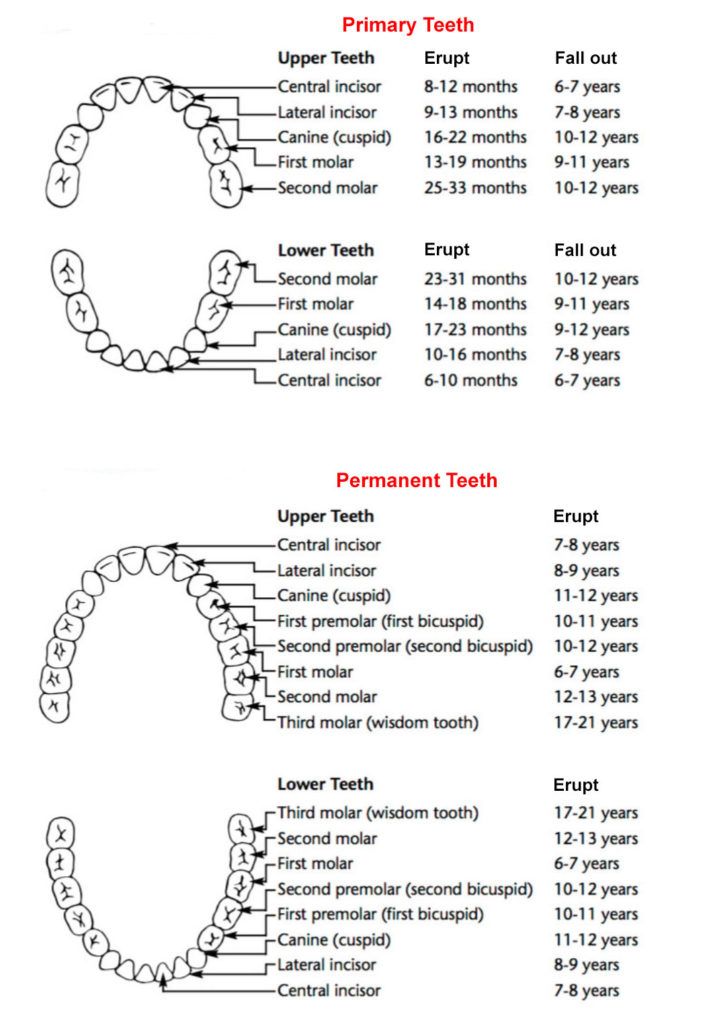We are excited to be having so many generations of patients return for their oral care at our clinic in Burnaby! Many of our patients are now expectant parents or parents of young ones.
With this in mind we have decided, over the next several months, to write a series of blogs on children’s dentistry. We hope that these may serve as a point of reference for most and be a great start for many healthy smiles.
Feel free to contact us at Dental Laser Esthetics for more information.
To ensure healthy teeth in babies, let’s start from the very beginning:
Healthy Teeth in Babies: Before the Baby is Born
Your child’s teeth begin forming between the third and sixth month of pregnancy. What the pregnant mother eats affects those developing teeth. A balanced diet usually provides adequate amounts of nutrients to nourish both mother and child.
For normal formation of your baby’s teeth, nutrients — especially vitamins A, C and D, protein, calcium and phosphorus — are needed. In fact, if a baby’s calcium needs are insufficient, stores of the nutrient may even be drawn from the mother’s bones.
Pregnancy can affect a mother’s teeth. Hormone levels increase during pregnancy. As a result, the expectant mother has a more intense reaction to the toxins produced by the bacteria in plaque. This can cause her gums to become red, tender and bleed more easily.
Thorough brushing and flossing, along with regular dental visits up until well into the third trimester, will help gums stay healthy throughout pregnancy.

Infancy
Newborn babies are actually born with 20 primary teeth already developing in their jaw bones. These primary teeth will erupt in the next two and a half years. The front four teeth usually erupt first which happen as early as six months after birth. Some babies seem to have no problem with teething but some may feel cranky, uncomfortable and develop a rash on their cheeks from drooling.
Your baby may feel better if allowed to chew on a clean cool teething ring. Fever is not normal for a teething baby. Call your physician.
Avoid teething cookies or biscuits. They are not a good choice as they contain sugar and may lead to tooth decay. Teething gels or ointments should only be used on the advice of your dentist.
Your infant depends entirely on you for dental care. You may begin cleaning the baby’s mouth during the first few days after birth. After every feeding, gently wipe the baby’s gums and teeth with a damp washcloth or gauze pad to remove plaque. This establishes at an early age the importance of dental hygiene and the feeling of having clean teeth and gums.
To clean your child’s teeth, you can sit with the child’s head in your lap, or you can lay the child on a comfortable secure surface. Whichever position suits you, just make sure you can see easily into the child’s mouth.
Watch for our next blog: Baby bottle decay, Thumb sucking and The First Dental Visit!
Again, if you have any questions on prenatal dental development or looking after your baby’s teeth, please contact us at Dental Laser Esthetics in Burnaby, BC. We love clients of all ages! You may also want to read more on our Children’s Dentistry page>>